![Futterman, Joel / Chad Fowler / Steve Hirsh: Ebb & Flow [2 CDs] (Mahakala Music) Futterman, Joel / Chad Fowler / Steve Hirsh: Ebb & Flow [2 CDs] (Mahakala Music)](https://www.teuthida.com/productImages/misc4/32902.jpg)
Continuing the connections from prior Mahakala Music albums Warp & Weft, (Futterman/Hirsch) and Two Five None (Fowler/Hirsch) this album brings the three together as a dynamic trio recording the two-part "Ebb & Flow", a spectacular convergence that, true to the title, shows tremendous momentum and moments of great introspection, an incredible collective free encounter!
In Stock
Quantity in Basket: None
Log In to use our Wish List
Shipping Weight: 3.00 units
EU & UK Customers:
Discogs.com can handle your VAT payments
So please order through Discogs
Sample The Album:
Joel Futterman-piano
Chad Fowler-stritch
Steve Hirsh-drumset
Click an artist name above to see in-stock items for that artist.
UPC: 195269157029
Label: Mahakala Music
Catalog ID: MAHA-030
Squidco Product Code: 32902
Format: 2 CDs
Condition: New
Released: 2022
Country: USA
Packaging: Digipack - 3 panel
Recorded at Mastersound Studio, in Virginia Beach, Virginia, by Rob Ulsh
"Joel Futterman, Chad Fowler and Steve Hirsh met up on the shore of Chesapeake Bay in January 2022. Each had recorded as a duo with the other, and they had talked for months about playing together. When they finally converged, the result was magical. Ebb and Flow is the result - a collection of music that arose in that moment between those people. Nothing pre-planned, noting discussed - just meet and hit and let the music come through."-Mahakala Music
"It wasn't intended this way, but I've been listening to these two albums [Ebb & Flow & Timeless Moments] as a playlist along with two Mahakala discs from last year: Futterman and Hirsh's Warp & Weft, and Fowler and Hirsh's Two Five None. The four recordings, which feature every possible duet from this group along with the trio, has become a cornerstone to my summer 2022 listening. Beach music playlist!
Joel Futterman is the musical exemplar of the evolutionary idea of "Humans as Persistence Hunters." This concept says that humans excel not because of spectacular structures of fierceness (e.g., giant saber teeth, or vicious claws on our hind legs), but because we persist. We keep going. We learn things. And then we keep going, having learned things.
You can see this in his own story of dogged practice over hours and hours, hunting the moment, but I also see this in my experience of Ebb & Flow, made up of two parts, each of which stand entirely on their own as an experience. For me, on these records, the unit of relevance is the track, not the album. I play "Part 1," at 37-ish minutes, and I need to sit with it for a while. It's a complete free jazz statement, and it becomes more sublime the longer you are in it. In this way it is like Warp & Weft a glorious monster of a duet between Hirsh and Futterman (clocking in at an hour fifty) and which pays dividends the deeper you stay under its water.
This is in the territory cleared by Taylor, Lyons, and Murray, but Futterman, Fowler, and Hirsh have their own voices and own conversations. The three are fantastically responsive to each other, in all their non-idiomatic, non-narrative glory. The invented melodies never stop surprising and satisfying. Hirsh, in particular, along with laying down a field of exploding stars, contributes and responds to the melodies in an intriguing klangspielen way. "Part 2" starts in a dark ballad space, and then runs through the tumult until, 25-ish minutes in, you're in a sparse, bluesy space, suggestive of isolation and noir. There's always a story, just not always the kind you'd expect. Before long the saxophone is riding the avalanche being played by the piano. [...]"-Gary Chapin, The Free Jazz Collective
Get additional information at The Free Jazz Collective
Artist Biographies
• Show Bio for Joel Futterman "Joel Futterman, Piano and Indian Flute Determined to push the limits of the piano to techniques never heard in jazz, Joel began a 25-year regimen of practicing 8-10 hours a day. During this period, he developed a three-hand technique based on completely autonomous playing between the hands. With more than 70 recordings, he is considered one of the most innovative yet enigmatic new music pianists. Known for his spirited, highly imaginative, and innovative piano technique, Joel Futterman is an internationally recognized veteran pioneer into the frontiers of spontaneous, improvised music. He is considered one of the foremost inventive and adventurous artists shaping the creative, progressive music scene today. Futterman continuously pushes the limits of the piano as he explores new musical horizons. He has performed across North America and Europe including at such noted music festivals as the Tampere Jazz Festival in Finland, the Vision Festival in New York, the New Orleans Jazz & Heritage Festival, and the Guelph Festival in Canada. He has performed with such notable jazz innovators as Jimmy Lyons, Rahsaan Roland Kirk, Paul Murphy, Joseph Jarman, Richard Davis, William Parker, Alvin Fielder, and Hal Russell; as well as Edward 'Kidd' Jordan, with whom he has had a highly productive association. For many years, Futterman has also played the Indian Wooden Flute. Joel Futterman was born in Chicago, IL. He grew up and lived in Chicago until 1972. Joel had piano lessons from about age 9-11, then continued playing on his own, eventually studying theory and harmony with Alan Swain. Joel met Clarence (Gene) Shaw when he was 18 and studied with Clarence for two years. Clarence was an important influence at the time. One night Clarence invited Joel to his home for a party. He introduced Joel to Charles Mingus. Joel recalls that Mingus gripped his hand firmly and stared up at the ceiling. Joel attended University of Illinois in Chicago obtaining a (B.S.). Herman Finer, professor of political science, was a profound influence and encouraged Joel to pursue his creative endeavors. While Joel was in college, his mother passed away and he isolated himself and began practicing 12 to 16 hours a day. Practicing was the only comfort for him at this time. Joel attended Northeastern University in Chicago and worked on an MS in Education. He was nine hours short of receiving the degree when he decided to leave Chicago. Joel did receive an MS in Education with an endorsement in Reading at Old Dominion University in 1975. In 1972, Joel moved to Virginia, where he resides today, in a personal quest to develop his creative voice. His first album, CAFETERIA, was released in 1980 to considerable acclaim due to its originality. Since then, his recordings have included a number of jazz legends, such as Jimmy Lyons, Richard Davis, Hal Russell, William Parker and others. In 1994, photographer Michael Wilderman introduced Joel to Edward 'Kidd' Jordan, and since then Joel has enjoyed many rewarding musical collaborations with Kidd and drummer Alvin Fielder. Also, Joel Futterman has had a deep association with artist Ike Levin, founder of the Charles Lester Label." ^ Hide Bio for Joel Futterman • Show Bio for Chad Fowler "I'm Chad Fowler. I write books, write and play music, write software, lead organizations (currently for Microsoft, in Berlin), invest in startups, speak at conferences, teach, learn, organize conferences, etc. I started and co-organized a couple of Ruby-related conferences including The International Ruby Conference and RailsConf." ^ Hide Bio for Chad Fowler • Show Bio for Steve Hirsh Steve Hirsh: "About Me I come from a non-musical family. But every week growing up, I'd get my allowance and go to the local record store to pick up the latest hit. At 10 years old, I started guitar lessons at a neighborhood community center. I wanted to learn Beatles tunes but instead found myself learning classical guitar. I wasn't into it and stopped after a year. Then in junior high, I had a band/orchestra class. I started off playing alto sax. But in the summer after my first year, I got braces on my teeth and my orthodontist told my mother that playing a reed instrument would be bad for my overbite. So in my second year, I started on drums because I figured it would be the easiest instrument to catch up on. The bug bit me then, and I would spend hours playing along to records on my snare drum. I went to a specialized public high school in New York City that focused on math and science. They had no music classes, except for a single music appreciation class that dealt entirely with European classical music. There was one Black girl in my class (!). One day she asked the teacher why he didn't teach anything about jazz and Miles Davis and John Coltrane. That was the first time I heard those names. The teacher said something dismissive and moved on. Somewhere around there I got my first drum set and was trying to figure out how to play it. One day in the library, I was thumbing through the record collection and came across Kind of Blue and Blue Trane. I remembered hearing Miles' and Trane's names and took the records home. I was astounded by what I heard, particularly drummer Philly Joe Jones on Blue Trane. I had no idea what or how he was playing and could hardly believe that there was only 1 drummer. Over the next 10 or so years, I dove deeper and deeper into the music. I worked forwards and backwards - Bitches Brew-era Miles, and late John Coltrane, and Max and Bird and then everyone in between, and then back to Basie and Ellington and Papa Jo Jones. I was playing in rock and blues bands and saw jazz drumming as beyond my abilities. After my 2nd year of college, I told my parents that I wanted to transfer to Berklee College of Music. But I had no one to help me navigate that change and I was unable to do it myself. Eventually, I just quit college, moved to California, and started playing in bands. I wound up hanging out and then working at Keystone Korner. I saw everyone there - Dexter Gordon, Max Roach, Art Blakey, Rhasaan Roland Kirk, Stan Getz, Mary Lou Williamson, the house band with George Cables and Eddie Marshal, Billy Higgins, Woody Shaw, Elvin Jones. And I started trying to play the music. But eventually, I quit playing for a variety of reasons, including the inability to believe I could really ever play it well and authentically, and the need to get away from the drug scene (this was San Francisco in the mid-'70s). But I never stopped listening, and eventually went back to playing in rock and blues bands. I quit playing again in the early 80s but then picked it back up 20 years later when I bought my son a drum set. I bought it for him, then took it over (I sat down behind it to check it out and didn't come out for a week.). I've been playing steadily since then. I played a lot of straight-ahead jazz gigs, a lot of dinner jazz. But I always had a taste for the more outside sounds, and for the last few years, that's exclusively what I've been playing. I have led several improvising ensembles in the last few years, and have played most of the Twin Cities venues that are open to this music, including Khyber Pass Cafe, The Icehouse, Jazz Central Studios, The Cedar Cultural Center, and Grand Oak Opry. I started a regular series at the East Side Freedom Library in St. Paul, featuring my groups and other improvising ensembles. I also hosted a weekly open session there, where anyone could come and gain experience improvising with experienced players. I've played with (among others) William Parker, Joel Futterman, Eri Yamamoto, Matthew Shipp, Ivo Perelman, Luke Stewart, Douglas Ewart, Babatunde Lea, George Cartwright, Donald Washington, Chad Fowler, Zoh Amba, Brad Holden, Dick Studer, Josh Granowski, Matt Trice, Kavyesh Kaviraj, and DeVon Russell Grey. In the past year, with the isolation of the pandemic and the near-total loss of performance opportunities, I have become involved in several remote collaborations, with both old and new friends. There are a few of those on the Recordings page, if you're curious. My latest releases are Ebb & Flow, with Joel Futterman and Chad Fowler, Notice That There, with Geirge Cartwright, Chad Fowler, Christopher Parker and Kelley Hurt, Warp & Weft, a collaboration with the extraordinary pianist Joel Futterman, Two Five None, a duo with Chad Fowler, and You Know When It's Time by Original Mind, all on Mahakala Music https://mahakalamusic.bandcamp.com/. There's more stuff coming - follow me on Bandcamp, follow Mahakala Music, and send me a note asking to be added to my email list. I endorse Canopus drums and Bosphorus cymbals. Beautiful instruments I'm lucky to play. Born and raised in New York City, I now make my home in the woods of Northern Minnesota." ^ Hide Bio for Steve Hirsh
7/1/2025
Have a better biography or biography source? Please Contact Us so that we can update this biography.
7/1/2025
Have a better biography or biography source? Please Contact Us so that we can update this biography.
7/1/2025
Have a better biography or biography source? Please Contact Us so that we can update this biography.
Track Listing:
CD1
1. Part One 37:41
CD2
1. Part Two 42:56
Improvised Music
Jazz
Free Improvisation
Trio Recordings
Collective & Free Improvsation
Trio Recordings
Staff Picks & Recommended Items
New in Improvised Music
Search for other titles on the label:
Mahakala Music.


![Futterman, Joel / Chad Fowler / Steve Hirsh: Ebb & Flow [2 CDs] (Mahakala Music) Futterman, Joel / Chad Fowler / Steve Hirsh: Ebb & Flow [2 CDs] (Mahakala Music)](https://www.teuthida.com/productImages/full/32902.Full.jpg)
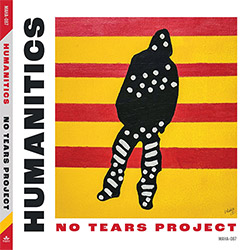
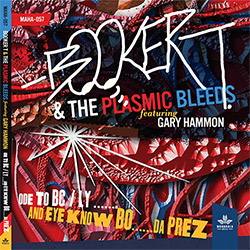
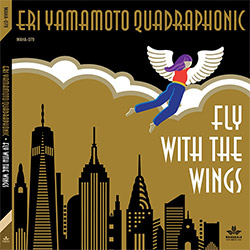
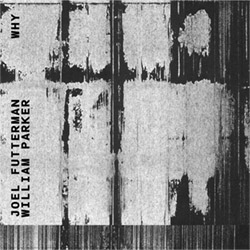


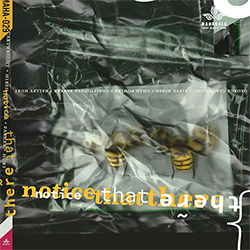
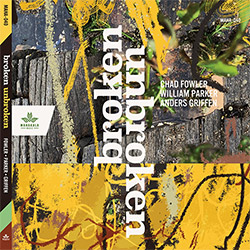
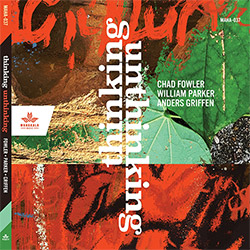
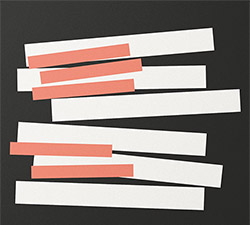
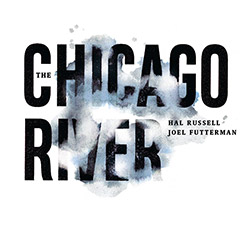

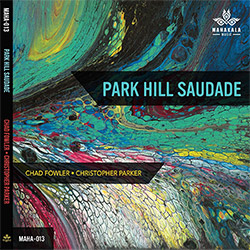



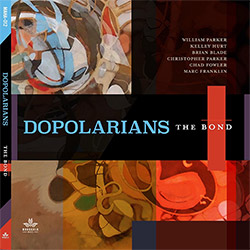
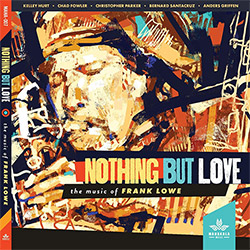
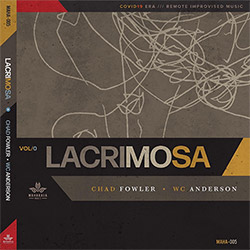
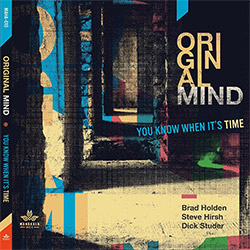
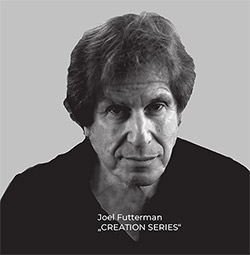
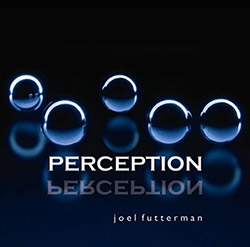
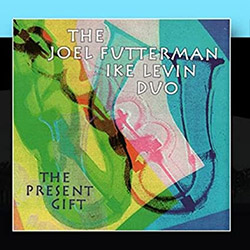
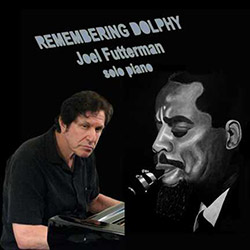
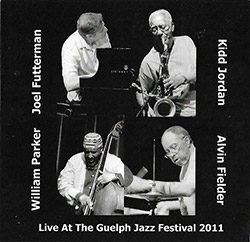
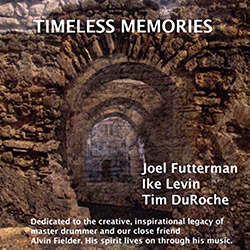










![Deupree, Jerome / Sylvie Courvoisier / Lester St. Louis / Joe Morris: Canyon [2 CDs]](https://www.teuthida.com/productImages/misc4/36404.jpg)


![Eternities: Rides Again [CASSETTE]](https://www.teuthida.com/productImages/misc4/36247.jpg)

![Lopez, Francisco: Untitled (2021-2022) [2 CDs]](https://www.teuthida.com/productImages/misc4/36438.jpg)




![Eventless Plot | Haarvol: The Subliminal Paths [CASSETTE + DOWNLOAD]](https://www.teuthida.com/productImages/misc4/36232.jpg)












![Eventless Plot | Francesco Covarino: Methexis [CASSETTE + DOWNLOAD]](https://www.teuthida.com/productImages/misc4/36231.jpg)



![Das B (Mazen Kerbaj / Mike Majkowski / Magda Mayas / Tony Buck): Love [VINYL]](https://www.teuthida.com/productImages/misc4/36329.jpg)



![Hemphill Stringtet, The: Plays the Music of Julius Hemphill [VINYL]](https://www.teuthida.com/productImages/misc4/36409.jpg)



![Halvorson, Mary Septet: Illusionary Sea [2 LPS]](https://www.teuthida.com/productImages/misc4/17952.jpg)






![Money : Money 2 [2 CDs]](https://www.teuthida.com/productImages/misc4/35894.jpg)




![Klinga, Erik: Elusive Shimmer [VINYL]](https://www.teuthida.com/productImages/misc4/36258.jpg)
![CHANGES TO blind (Phil Zampino): Volume 9 - I Wave on a Fine Vile Mist [CD + DOWNLOAD]](https://www.teuthida.com/productImages/misc4/36061.jpg)

![Wallmart / Rubbish: Asset Protection [split CD]](https://www.teuthida.com/productImages/misc4/35900.jpg)


![+Dog+: The Family Music Book Vol. 5 [2 CDs]](https://www.teuthida.com/productImages/misc4/35897.jpg)
![Kuvveti, Deli : Kuslar Soyledi [CASSETTE w/ DOWNLOAD]](https://www.teuthida.com/productImages/misc4/36107.jpg)

![Nakayama, Tetsuya: Edo Wan [CASSETTE w/ DOWNLOAD]](https://www.teuthida.com/productImages/misc4/36105.jpg)




![Yiyuan, Liang / Li Daiguo: Sonic Talismans [VINYL]](https://www.teuthida.com/productImages/misc4/35957.jpg)
![Brown, Dan / Dan Reynolds: Live At The Grange Hall [unauthorized][CASSETTE]](https://www.teuthida.com/productImages/misc4/36245.jpg)








![Palestine, Charlemagne / Seppe Gebruers: Beyondddddd The Notessssss [VINYL]](https://www.teuthida.com/productImages/misc4/36206.jpg)
![Palestine, Charlemagne / Seppe Gebruers: Beyondddddd The Notessssss [NEON GREEN VINYL]](https://www.teuthida.com/productImages/misc4/36207.jpg)

![Laubrock, Ingrid: Purposing The Air [2 CDs]](https://www.teuthida.com/productImages/misc4/35639.jpg)

![Yoko, Ono / The Great Learning Orchestra: Selected Recordings From Grapefruit [2 CDs]](https://www.teuthida.com/productImages/misc4/35841.jpg)









![Zorn, John / JACK Quartet: The Complete String Quartets [2 CDs]](https://www.teuthida.com/productImages/misc4/35609.jpg)

![Lonsdale, Eden: Dawnings [2 CDs]](https://www.teuthida.com/productImages/misc4/35480.jpg)



![Sorry For Laughing (G. Whitlow / M. Bates / Dave-Id / E. Ka-Spel): Rain Flowers [2 CDS]](https://www.teuthida.com/productImages/misc4/35985.jpg)

![Rolando, Tommaso / Andy Moor : Biscotti [CASSETTE w/ DOWNLOADS]](https://www.teuthida.com/productImages/misc4/36106.jpg)


![Electric Bird Noise / Derek Roddy: 8-10-22 [CD EP]](https://www.teuthida.com/productImages/misc4/35970.jpg)








![Elephant9 : Mythical River [VINYL]](https://www.teuthida.com/productImages/misc4/34624.jpg)



![Elephant9 with Terje Rypdal: Catching Fire [VINYL 2 LPs]](https://www.teuthida.com/productImages/misc4/35355.jpg)
![Deerlady (Obomsawin, Mali / Magdalena Abrego): Greatest Hits [VINYL]](https://www.teuthida.com/productImages/misc4/34876.jpg)







![Surplus 1980: Illusion of Consistency [CD]](https://www.teuthida.com/productImages/misc4/35069.jpg)
![Staiano, Moe: Away Towards the Light [VINYL + DOWNLOAD]](https://www.teuthida.com/productImages/misc4/35037.jpg)
![Coley, Byron: Dating Tips for Touring Bands [VINYL]](https://www.teuthida.com/productImages/misc4/17906.jpg)

![Lost Kisses: My Life is Sad & Funny [DVD]](https://www.teuthida.com/productImages/misc4/lostKissesDVD.jpg)